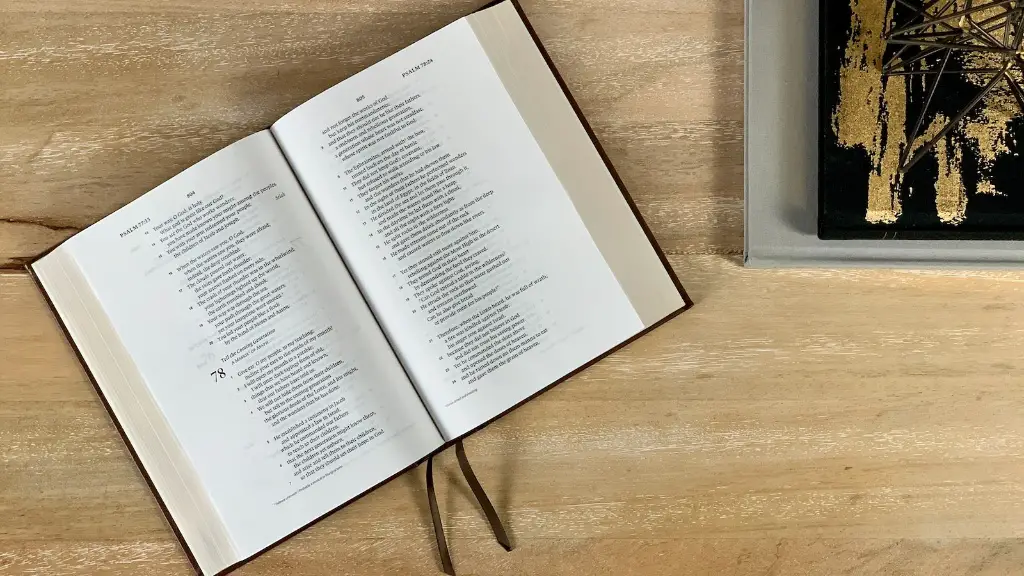Tools to Get Started on a Poetry Journal
Writing a poem can be an enjoyable and creative way to express oneself, while also creating something of lasting beauty. Many writers find it helpful to keep a poetry journal to focus their poetic efforts and express their thoughts and feelings in a creative manner. Starting a poetry journal is easy; all one needs are some basic supplies and a willingness to write.
Gathering Supplies
The most important step in beginning a poetry journal is gathering supplies. Depending on the writer’s preferences, one may use a computer or a notebook for their journal. If the writer plans on handwriting their poetry, it is important to have some good quality pens or pencils. Additionally, one can make the journal more reflective of their personality by adding items such as stickers, photographs, paintings, or drawings.
Finding Inspiration
Once the supplies are gathered, the writer can focus on generating ideas for their poems. Often, simply reading other poetry or opening up a dictionary can stimulate creativity. It is important to remember that inspiration can be found everywhere; one need not look further than their own everyday experiences. Writing down words, stories, phrases, and ideas as they come to mind can be a great way to capture these moments of inspiration.
Journaling Regularly
The key to keeping a successful poetry journal is regularly journaling. Writing at least once or twice a week is a great way to stay focused on the writing process. Keeping the journal in a visible and accessible location can also be helpful for reminding oneself to write regularly. It can also be helpful to set aside a specific time for journaling, during which one can block out all distractions and write as much as possible.
Explore Different Writing Techniques
Exploring a variety of poetry techniques can also expand the scope of one’s writing and can further help with inspiration. Poets can experiment with writing forms such as haiku, sonnets, and free verse. Additionally, writers can make use of various poetic devices, such as imagery, metaphor, and rhyme. As one’s understanding of different techniques grows, they can use these to unlock their creative potential.
Joining or Starting a Writing Group
Joining writing groups or online forums can be a great way to stay motivated and find support. In a group setting, writers can discuss their works, offer constructive feedback, and benefit from the encouragement of their peers. Additionally, reading out loud a poem can also improve its effectiveness and allow for more meaningful interpretations.
Seeking Professional Advice
Though it is always beneficial to practice writing regularly and to receive feedback from others, it is also a good idea to seek out professional advice from established poets or authors. Such individuals can provide valuable insight and direction which can further improve one’s writing skills. Professional advice can also strengthen a poet’s confidence in their work and spur them to continue writing.
Finding Time to Write
Finding the time to write is often the biggest challenge faced by aspiring poets. When everyday activities take priority, it can be difficult to stay motivated. However, taking small steps, such as writing a few lines a day, can ensure that one finds time to write without feeling overwhelmed. Additionally, working on a poem over the course of several days can help to ensure that it will be of a higher quality.
Storing and Displaying Poems
Once the poem is finished, it is important to store and display it in an appropriate manner. Rather than simply keeping a single copy, it is a good idea to make multiple copies in order to protect against potential damage or destruction. Additionally, it may also be beneficial to put up copies of the poem in a visible location so that one can be inspired by it whenever one sees it.
Rewriting and Editing Poems
It can also be helpful to edit and revise the poem before attempting to publish it. Taking the time to edit a poem can help to make it cleaner, stronger, and more powerful. It is also important to remember that not all poems are meant to be published; even if the poem does not seem strong enough to publish, it can still be stored away and reworked at a later stage.
Publishing and Subscribing to Poetry Journals
Once the poem is satisfactory to the poet, they may decide to publish it. Subscribing to poetry journals or magazines is a great way to increase one’s exposure to a wider audience and can also provide the opportunity for feedback from more experienced poets.
Seeking Opportunities to Perform Poetry
Poets can further increase their exposure by seeking out opportunities to perform poetry live. Various poetry slams and open mic nights around the country can provide aspiring poets with the chance to present their work and obtain experience in front of an audience.
Marketing One’s Work
Marketing one’s poems is another good way to spread one’s work and increase exposure. This can involve a variety of activities such as creating a webpage, joining discussion forums, and even placing advertisements in newspapers and magazines.
Submitting to Competitions and Awards
A great way to increase exposure and improve one’s skills is to participate in competitions and awards. Many organizations host these competitions, some of which can be regional, national, or even international. Participating in competitions can often lead to success and recognition, and can provide a great opportunity for exposure.
Using Social Media for Poetry
In the digital age, there are a variety of ways to share one’s poetry with a larger audience. Social media platforms, such as Twitter and Instagram, What’s App, Tiktok, and others, have enabled poets to share their work with a global audience, which can result in more exposure and awareness of their work.
Staying Healthy while Writing
Another important rule in keeping a successful poetry journal is to ensure that one takes care of themselves while writing. It is important to ensure that one has a balanced diet and enough sleep, as these can help to ensure creativity. Additionally, physical activities such as exercise and yoga can provide some much needed relaxation and mental clarity. Taking a few moments to decompress and relax can often help to recharge one’s creative process.
Conclusion
Keeping a poetry journal can be an enjoyable, creative way to express oneself and to explore ideas. By gathering supplies, seeking inspiration, journaling regularly, exploring writing techniques, joining or starting a writing group, seeking professional advice, finding time to write, storing and displaying poems, reworking and editing poems, submitting work to competitions, marketing one’s work, and taking care of oneself, aspiring poets can create a fulfilling and successful experience with their poetry journals.




